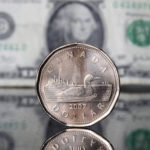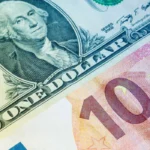Gold dipped on Tuesday as the dollar firmed, but remained supported by uncertainty surrounding Greece that prompted safe-haven demand for the yellow metal. Silver, platinum and palladium fell as well. Copper slid as consumer inflation in China slowed the most in five years, fanning fears demand in the red metals top consumer may ease.
Comex gold for delivery in April was down 0.32% at $1 237.5 per troy ounce at 10:30 GMT, shifting in a daily range of $1 245.9-$1 236.6. The precious metal gained 0.56% on Monday and closed at $1 241.5.
Gold traders sought the safety of the metal as growing concerns that Greece will be the first country to leave the Eurozone, while no diplomatic accord was reached over the conflicts in Ukraine.
Greece’s new government wants to lift austerity measures imposed by the previous administration as part of the country’s €110-billion bailout in 2010. Led by Prime Minister Alexis Tsipras, the new government will vote Tuesday on a minimum-wage increase, among other measures, that will put the nation in breach of the conditions on its anti-collapse deal inked with European countries and the International Monetary Fund.
However, the country may run out of funding by the end of the month as Mr. Tsipras’s tactics face severe criticism from creditors, including Germany and its Chancellor Angela Merkel restating close-to-zero tolerance for Greece’s demands.
European Commission President Jean-Claude Juncker also backed up Ms. Merkel’s position, boosting gold prices, in line with investors’ tendency to seek shelter in the yellow metal during political turmoil.
Meanwhile, the armed conflict in Ukraine can escalate even further, if peace talks fail to take control over the situation and the US distributes lethal defensive arms to the country.
President Barack Obama signaled on Monday the possibility to aid the Ukrainian government with weaponry, after his meeting with Ms. Merkel and despite her objections to the idea.
The US dollar index for settlement in March was up 0.37% at 94.930 at 10:30 GMT. The US currency gauge fell 0.28% on Monday to 94.582. A stronger greenback makes dollar-denominated commodities more expensive for holders of foreign currencies and curbs their appeal as an alternative investment, and vice versa.
“With ongoing concerns surrounding Greece and a potential default, as well as the Ukraine crisis, gold should find support and hold above the 55-day moving average at $1 225 and 100 day moving average at $1 217 in the near term,” said Jason Cerisola, a metals dealer at MKS Group, cited by CNBC.
Disinflation in China also sounded a positive note for the yellow metal, with broad expectations for further monetary easing measures by the People’s Bank of China circling in the air.
Assets in the SPDR Gold Trust, the biggest bullion-backed ETF, remained unchanged on Monday at the highest level since late September at 773.31 tons. Changes in holdings typically move gold prices in the same direction.
Copper
Copper for delivery in March fell 1.71% to $2.5365 per pound by 10:30 GMT, having shifted in a daily range of $2.5885-$2.5300. The industrial metal slid 0.19% on Monday to $2.5805.
Data by China’s National Bureau of Statistics showed that consumer prices rose by a worse-than-expected 0.3% on a monthly basis in January, while year-on-year the Consumer Price Index slid to 0.8%, the slowest growth in five years. Analysts had projected a drop to 1.0% from December’s 1.5% increase.
Moreover, factory gate prices slid for a 35th straight month, with the corresponding Producer Price Index tumbling by an annualized 4.3%, spurring expectations for further monetary easing by the People’s Bank of China and giving policy makers enough room to act.
Data on Sunday showed that Chinese exports fell by an annualized 3.3% in January, defying analysts’ projections for a 6.3% jump, while inbound shipments plummeted 19.9% as opposed to anticipations for a moderate 3.0% decline.
Oil prices, which halted a three-day rally, also helped push copper lower. Falling oil implies smaller mining and processing costs and also curbs sentiment toward the broad commodity markets.
Fears of a new Eurozone crisis due to a possible Greek euro-area exit also fanned concerns and dented demand for riskier assets, adding to uncertainty spurred by the diplomatic impasse on the conflict in eastern Ukraine.





